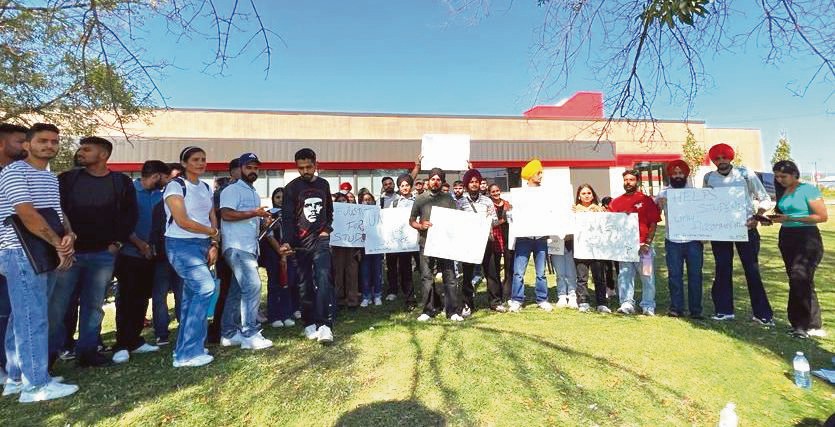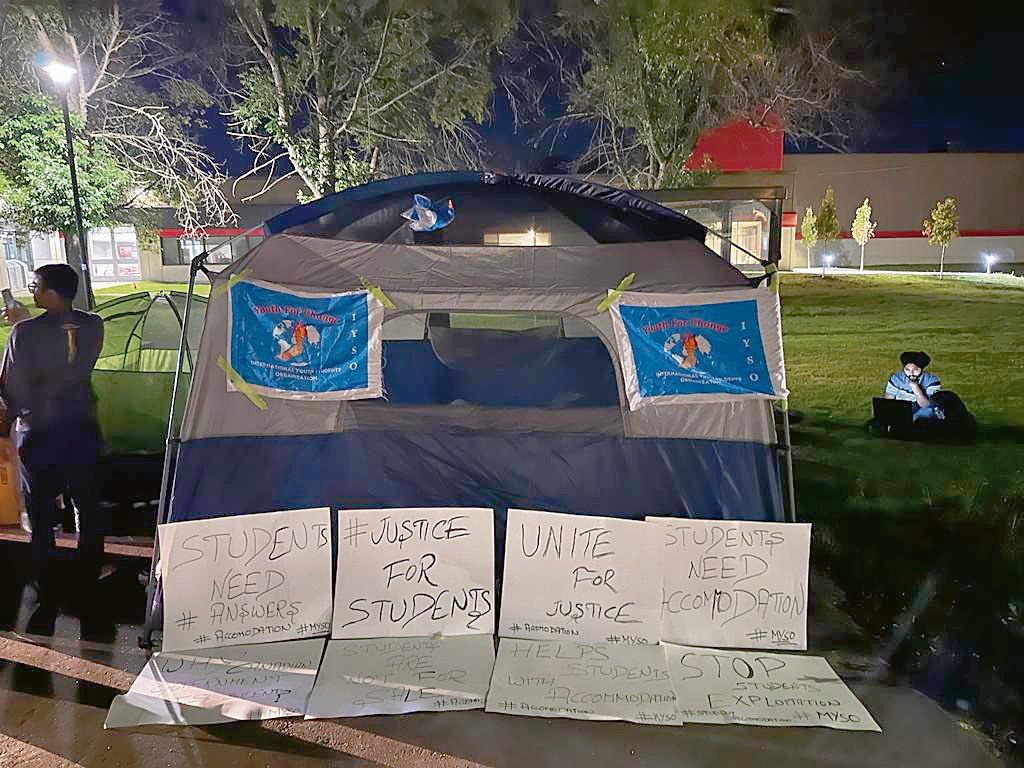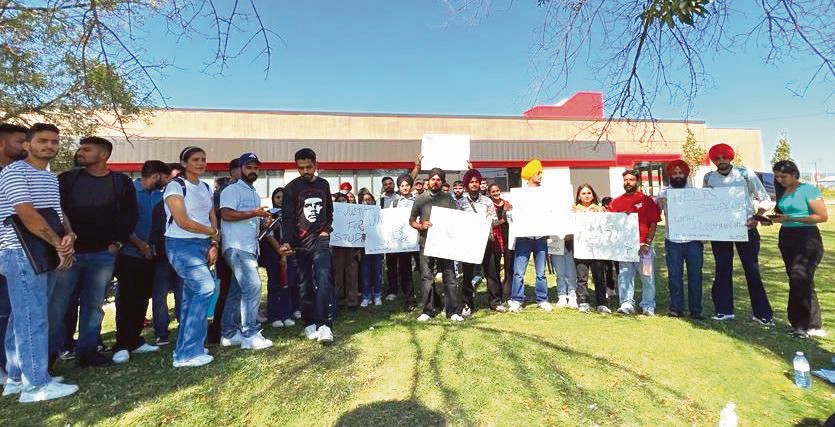In early September, hundreds of North Bay international students, mostly from India, spent their first week of school scrambling to find a place to live. Neither the federal government nor the post-secondary institutions—to which they pay tens of thousands of dollars in tuition fees—provided any assistance, or even prior warning of the situation. This is happening at a time when record numbers of foreign students are being allowed into Canada, and a housing crisis is gripping much of the country.
North Bay, a small industrial city of 50,000 dividing southern from northern Ontario about four hours north of Toronto, has a post-secondary student population of 10,000, which divided is divided across Canadore College and Nipissing University. Of the 5,600 students attending Canadore College, 3500 were international students as of this September 2023.
Harinder Singh, an organizer with the international students group Montreal Youth and Students Organization (MYSO), was on the ground in North Bay during the crisis and shared with North Star what they'd learned: "Some weeks ago our student group came to know that 200-300 students didn't have accommodations. We came to know that almost half of them are living in hotel rooms, paying $150-200 per night. Some of them are living under the sky in public parks, and they don't have groceries to feed themselves."
With no solution forthcoming from any public authorities, on September 5 a group of international students ranging from 25-50 launched a permanent "morcha" (protest) outside Canadore College resolve the crisis.

Singh told North Star that the student protestors demanded of Canadore College that one of the following conditions be met: an affordable housing option, a full refund of tuition and expenses, relocation to other campuses, or moving their classes online so they could find elsewhere to live.
On the night of September 5, Canadore countered the protest by calling the police and having the students protest pushed off Canadore's Commerce Court Campus. The protestors doubled down, setting up tents outside a bus shelter on Commerice Crescent.
Canadore initially presented the protestors with two days of paid accommodation to manage the crisis, but as Singh put it to North Star, "What are we supposed to do on the third day?"

Within two days of the morcha's launch, however, Canadore conceded to the student protestors' demand for affordable housing. The college initially offered the students a rate of $700 / month. But after some hard bargaining, the unhoused students walked away with a $400 / month guarantee of housing. For now, it looks like much of this housing will consist of living out of the same hotel or motel rooms that students have been renting out, except at the new guaranteed rate.
According to Khuspal Grewal, another MYSO representative, the source of this situation lies in profit-seeking on the part of colleges and the federal government. He explains that in 2018, international students invested around $22 billion in the Canadian economy. "But in 2022, it was $30 billion," pointing out that the federal government has clearly indicated its intention to increase this figure to $80 billion.
Issues impacting International students (who are also workers in Canada) have been in the news a lot over the past couple years. North Star and other sources have covered the stories of international students being ripped off by a fraudulent college in Montreal, or frauded by immigration agents and then threatened with deportation, and having wages stolen by employers (and then reclaimed through morchas and broader popular mobilization). But these stories have only come to light because people have thrown up a resistance against abuses that would have otherwise continued unchallenged.
- Worker fights to reclaim stolen wages alongside a growing movement
- 700 Indian international students and workers face deportation
- Students Protest 24/7 Outside Immigration Offices
- International Students’ 24/7 Protest Pays Off
- International students protest (and win) against university and government neglect
- Have Canadian universities found a new way to empty international students’ pockets?


